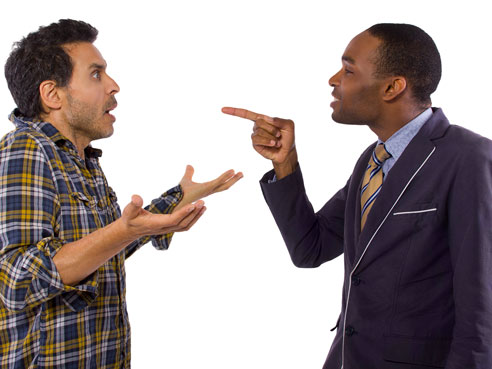 “From discussions at work, home or places of worship, and from posts on social media, we can be increasingly aware that, in many cases, the views our friends, colleagues and acquaintances have about politics may not match up with our own.”This election, perhaps as no other before, threatens to destroy longstanding friendships and relationships, according to Josh Klapow, Ph.D., a clinical psychologist at the University of Alabama at Birmingham.
“From discussions at work, home or places of worship, and from posts on social media, we can be increasingly aware that, in many cases, the views our friends, colleagues and acquaintances have about politics may not match up with our own.”This election, perhaps as no other before, threatens to destroy longstanding friendships and relationships, according to Josh Klapow, Ph.D., a clinical psychologist at the University of Alabama at Birmingham.
“From discussions at work, home or places of worship, and from posts on social media, we can be increasingly aware that, in many cases, the views our friends, colleagues and acquaintances have about politics may not match up with our own,” Klapow said. “And given the highly personal nature of this election, there are many opportunities to be caught off guard by thoughts, statements, endorsements and social media posts from friends and acquaintances whose politics differ from our own.”
Klapow has heard spouses claim they will seek a divorce if their partner votes ‘the wrong way,’ and he is aware of longtime friends who no longer speak to each other.
“Your reaction to individuals with different political views is really about you, not about them,” Klapow said. “This is an exercise in how you think, feel and react. Can you find a way to live in this time of national discussion and conflict in a manner that preserves your sense of self along with the relationships that you have come to value?”
Klapow suggests several considerations to take into account when confronted by a friend’s different opinion:
- Be prepared to be surprised. Because of the election, many people are sharing views that they might otherwise have kept to themselves. Be ready to hear views from friends that might be in conflict with yours.
- Think before you act. Before you respond, in person or online, think about your relationship. This person was your friend before this difference in opinion came to light. It is entirely possible that many of your friends and co-workers have views that differ from yours. Friendships are an important part of personal wellness, so be careful before doing or saying something that may end a valuable friendship.
- Allow for differences. Was the comment you heard or the post you saw specifically directed toward you? Or was this person just sharing their view broadly. The expression of an opinion does not have to translate into a personal invitation for a debate.
- Engage with respect. If you decide to discuss the differences, do not get caught up in political campaign rhetoric. If you feel you can enter into a discussion with a truly open mind, focused on learning more about why your friend feels differently than you do, then proceed.
- Weigh the impact of political views on defining the person. We live in a country that was founded on differing views. Remind yourself you likely have friends with different religious beliefs, different ethnic backgrounds, different thoughts about childrearing, sports and a whole host of topics. It is healthy to have friends whose opinions are different from yours. If you cannot handle those differences, the question you need to ask yourself is “why not?”
“We live in a country founded on differing views, but we are creatures drawn to those who are similar to ourselves,” Klapow said. “This election season is an opportunity to embrace differences, navigate challenging interactions and come out on the other side with the confidence that friendships do not have to be with only those who are carbon copies of ourselves.”